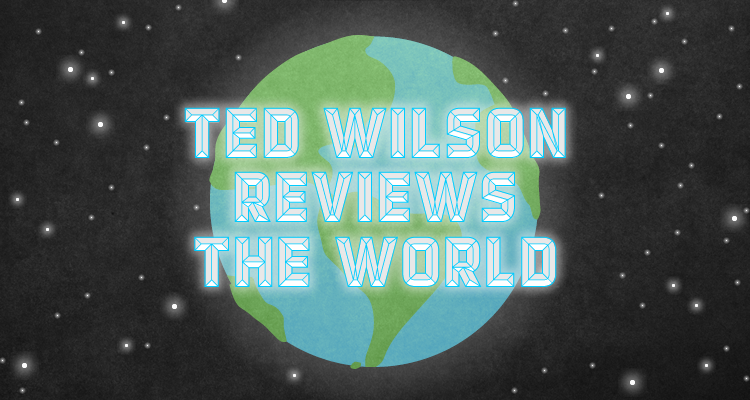Books & Culture
Rules of the Adult World: Dryland by Sara Jaffe

If any book could stir up enough nostalgia to make me wistful for the awkward halls and “malaise” classrooms of high school, it’s Dryland by Sara Jaffe. Not because I’m one of those people who loved high school. Not because I long for a simpler time (those were four fraught years, markedly complicated) but because Dryland, a novel of slow-burning subtlety, excavates the oblique joy of adolescence, and in that way portrays high school as it actually is: a time of reckoning but wonder. During adolescence, teens experience a moment in which they pivot away from what’s known and begin investigating the world and their implication in it. It’s both terrifying and exhilarating. But above all, it evokes possibility. Dryland takes place in that pivot.
In Portland, Oregon in the early 90s, Julie Winter is fifteen, favors Henley’s, flannel, and hoodies, a shrewd choice for the Pacific Northwest landscape, but also a nod toward queer intonation. Though emotionally a bit of a loner, Julie maintains a couple close friendships and participates in extra-curriculars, most notably joining the swim team despite finding herself in her brother’s shadow, a once Olympic hopeful. Julie attends parties, but slinks into the background. Her independence stimulates both confidence and anxiety. Often unsure of expectation and the rules of the adult world, Julie guards herself in numerable ways. She creates diversion stories, explanations for why she takes the bus downtown to eat breakfast alone, or why she’s flipping through new issues of Swimmers’ World without ever buying a copy. Turns out, adults don’t take notice — especially in these examples of dailyness — and her elaborate fabrication stories go untold. “I was definitely the youngest person in the diner. Nobody seemed to notice, or care. There was no need for me to come up with a story, other than that I’d woken up early and been ravenous and wanted to eat eggs at a diner.”
While her diverging interests from other girls starts to pronounce itself, especially juxtaposed to her boy-crazed best friend Erika, it is mostly Julie tuned into the differentiation. Which is not to say she’s isolated in her experiences and feelings — often the case in queer coming-of-age stories — Erika takes note of her distance and difference. She edges close, compassionately, but in the end is just a teen herself, unable to offer the maturity and wisdom needed to guide Julie out of her armor and into greater self awareness.
Julie befriends the older and enigmatic, Ben, who, like many of Dryland’s characters, is at first cloaked, out of focus. But he reveals himself to be true, and as a once close friend to Jordan, Julie’s brother, he proves himself the holder of useful information. It’s the early 90s, the peak of AIDS panic, and Jordan’s absence from the Winter family has equivocal undertones. Ben’s friendship provokes in Julie a demure search for her brother, a search mirroring her own internalized exploration.
Most compelling in Dryland is Julie’s circumspect development of identity. Her understated and hesitating self-actualization is nuanced, never heavy handed, and punctured with ambiguity. Coming out of the closet is so often portrayed or explained as a clear step into a known self, a singular embrace of trueness, rather than the confusing, muddled, lumbering forth toward suspicions, which is so much more often the case. Alexis, another girl on the swim team, is popular and talented. She takes an amicable interest in Julie, and the ensuing friendship coils in tension. Like many queer girls, first love is charged by emotional projections; Julie longs for Alexis, or longs to embody her. And Alexis spurs both a dismantling of Julie and a rebuilding. Ontological toggling ensues. We see the struggle in Julie concomitantly with her, making her a protagonist intimate, salient, and sincere.
The writing, especially the dialogue, of Dryland is sparse, hospitable to the necessary unspokens that take place between teens, especially in sensually charged atmospheres.
Alexis said, What are you sorry for?
I said, Is it okay that I’m coming to the party?
She said, Of course, why wouldn’t it be okay?
I wanted to say You know why. Not as an accusation. I wanted to ask why she hadn’t called, or if I could have the number of her private line so I could call if I needed to.
Alexis turned off the shower and turned toward me. My body felt like an animal’s. She said, The party’s for the whole team. I’m glad you can come.
The landscape of Dryland is equally scarce, Oregon notoriously washed out, monochromatic. Yet, Jaffe finely composites the wet streets of Portland, forming the city into a periphery but crucial character. “The pavement was slick and the streetlights were starfishes of light… My mind felt foamy and clean.” Julie busses downtown, walks alone in that aimless but productive way of the explorative. Not much in Dryland is dry. Whether floundering in the pool or wandering in the rain, Julie seeks grounding, dry land. We sense it is not a dire but delicate search. Hope infuses with heartache. Rejection confronts desire. Highly introspective, thoughtful, and compassionate, Dryland is an exacting and authentic coming-of-age story.









